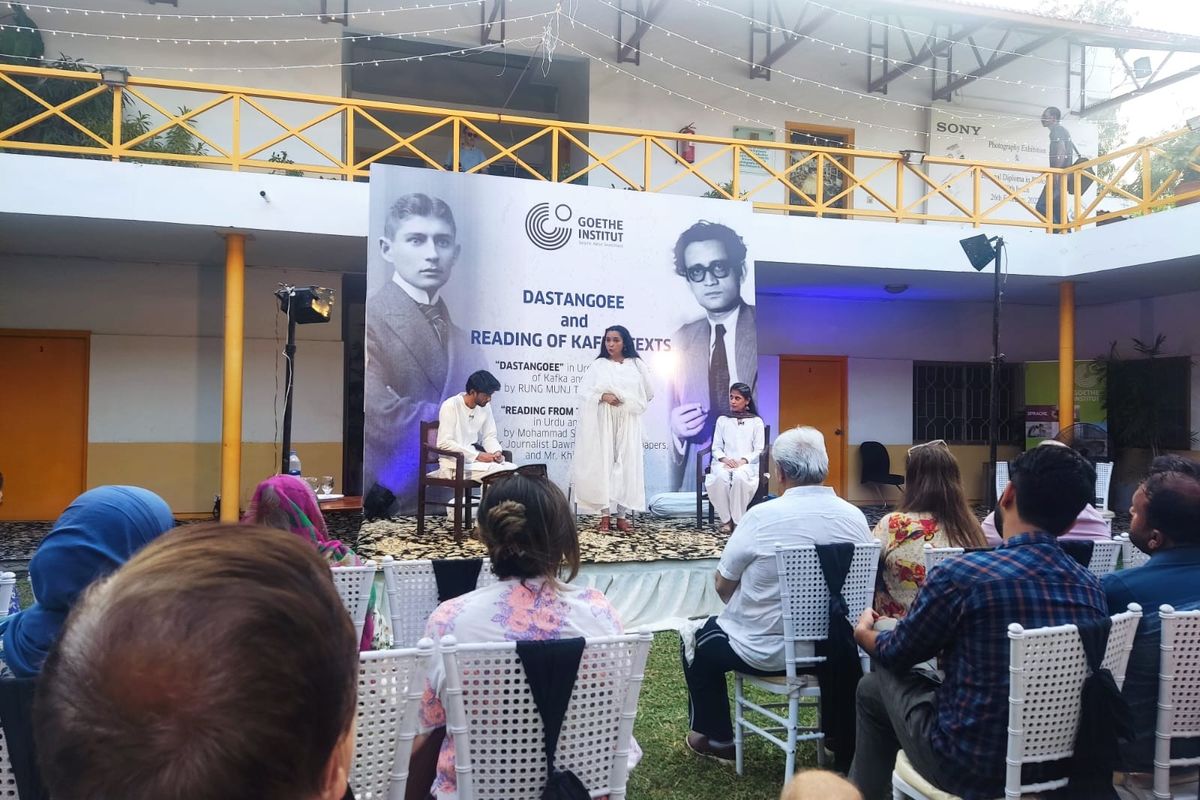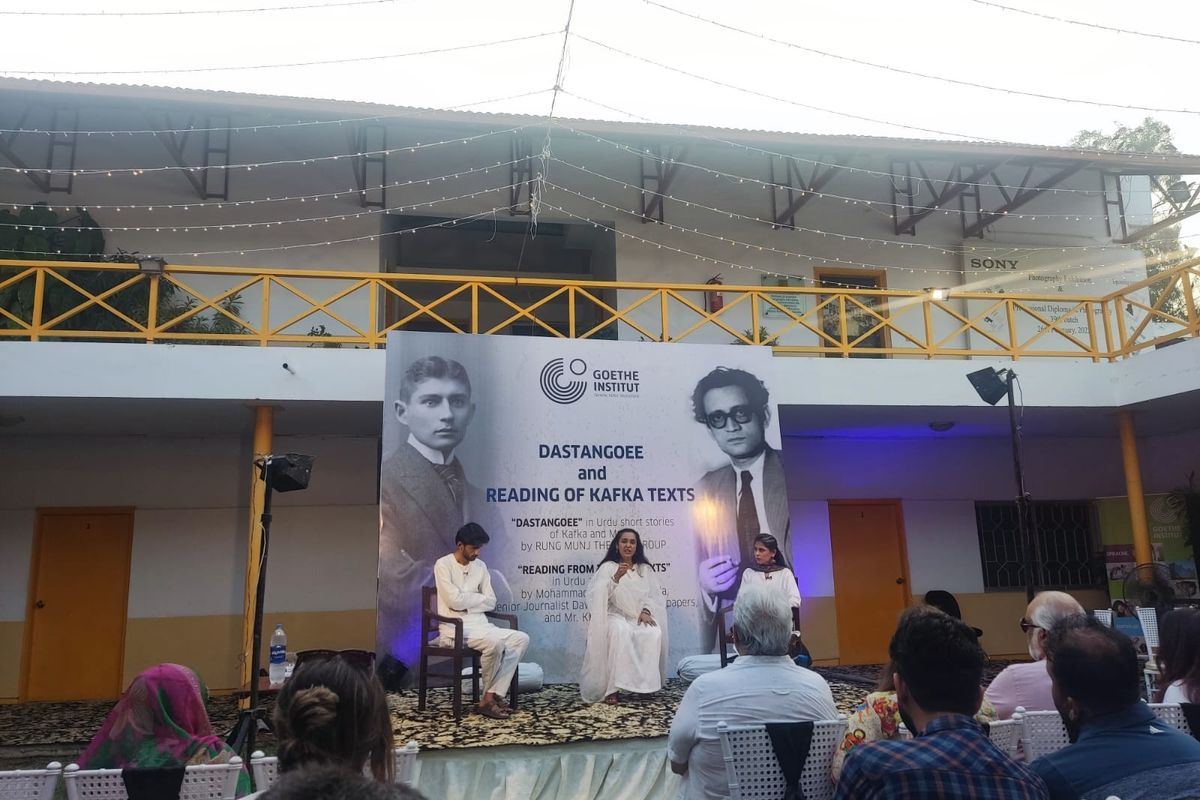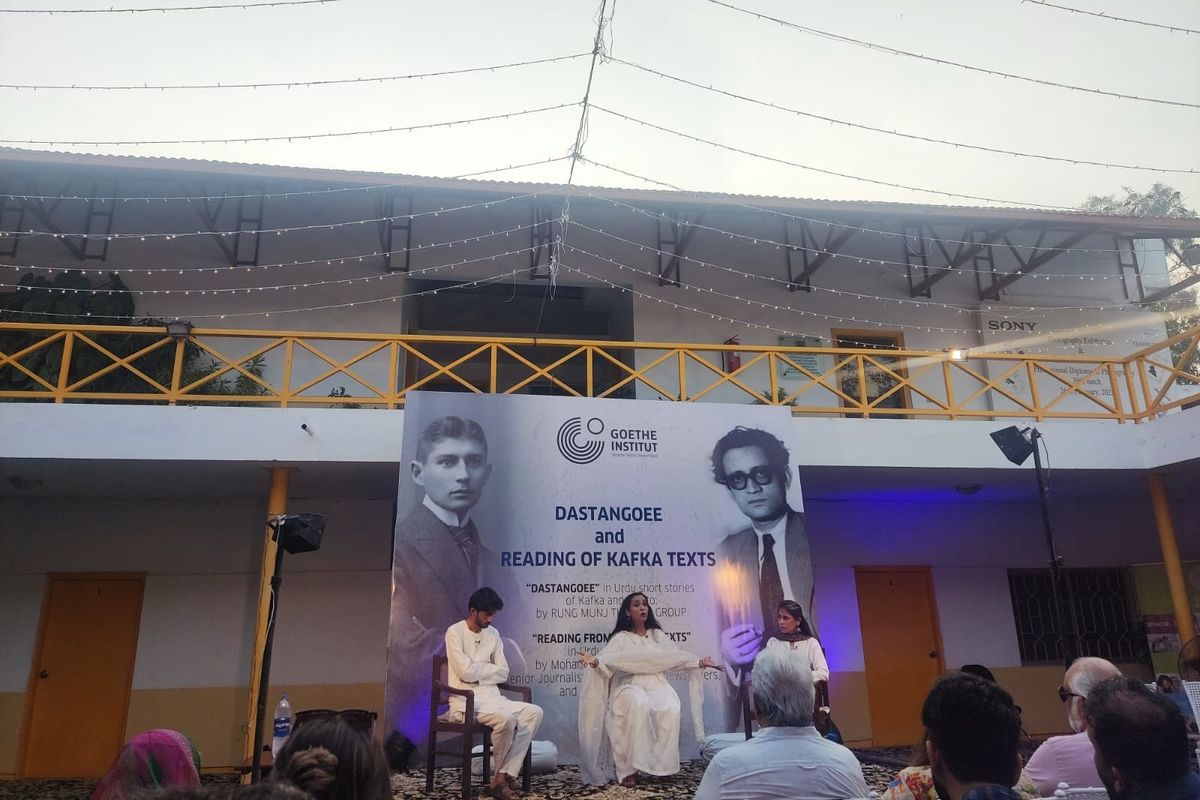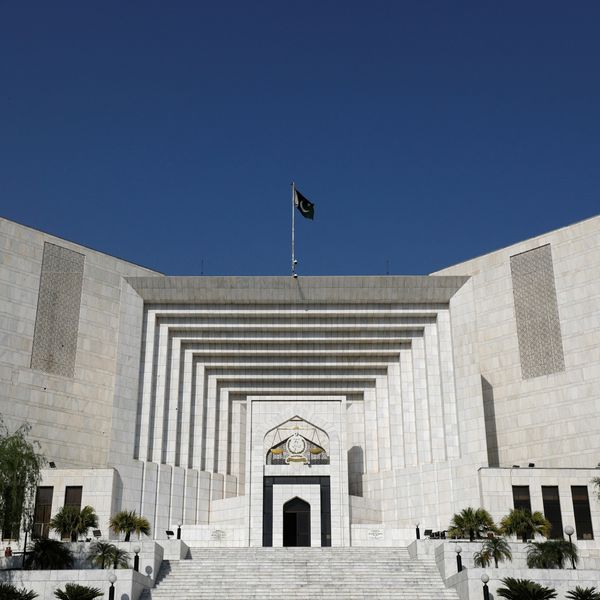Celebrating Kafka and Manto: A literary tribute in Karachi
The Goethe-Institut paid tribute to the two literary greats through Dastangoee and readings

Ammar Khaled

Dastangoee performance by Rung Munj Theater Group at Karachi's Goethe-Institut
Nukta
Dastangoee is a traditional form of storytelling that originated in South Asia
A celebration of German literary giant Franz Kafka was held at the Goethe-Institut
The event showed the works of Kafka and Manto, highlighting the similarity in their writings
Dastangoee is a traditional form of storytelling that originated in South Asia, particularly in India and Pakistan. It involves a storyteller, known as a dastangoh, who uses a combination of narration, dialogue, and dramatic performance to engage the audience.
As theater and film became more popular mediums of consumption, Dastangoee has experienced a revival in recent years, as artists seek to reintroduce this captivating form to contemporary audiences. This revival not only preserves cultural heritage but also adapts traditional narratives to address modern themes, making the stories relevant to today’s listeners.
An event celebrating the 100th anniversary of German literary giant, Franz Kafka, through Dastangoee was held at the Goethe-Institut Karachi on Saturday. The event showcased dramatic performances and readings of Kafka’s and Saadat Hasan Manto’s works, highlighting the similarity in their writings.
Organized in partnership with the Rung Munj Theatre Group and journalist Peerzada Salman, the evening aimed to explore the shared themes of dystopia, uneasiness, and alienation present in both Kafka's and Manto's writings.
Kafka was influenced by the perils of early 20th-century Europe, while Manto was shaped by the upheaval of the Partition of the Subcontinent in 1947. Despite the challenging outdoor arrangements in the summer heat, the performance curations and dedicated performers kept spirits high and the audience entertained

The highlight of the night was the Rung Munj Theatre Group's interpretation of Kafka’s "The Country Doctor." Delivered with an intense dramatic performance, it drew the audience in, highlighting the unsettlingly absurd woes faced by the protagonist. While Kafka’s "Judgement" was also performed, "The Country Doctor" was the sure winner of the night. The Urdu translations were well done and allowed Kafka's exploration of existential struggles in early 20th-century Europe.
The group then moved on to dramatic readings of Manto, emphasizing the contrast between his stories and Kafka’s themes. The group chose "Khol Do" and "Naya Qanoon” amongst Manto’s works. The combination of Kafka and Manto was both fluid and powerful. "Khol Do," with its stark portrayal of the trauma faced by migrants post-Partition, served as a somber counterpart to Kafka’s existential themes.

The second segment, led by Peerzada Salman and Khizer Salman, featured readings of Kafka’s works in both Urdu and English which were translated by Naiyer Masud. These texts highlighted Kafka’s enduring relevance across cultures and languages. In the end, the event successfully merged the old with the new, allowing Kafka’s and Manto’s works to resonate with today’s audiences.







Comments
See what people are discussing